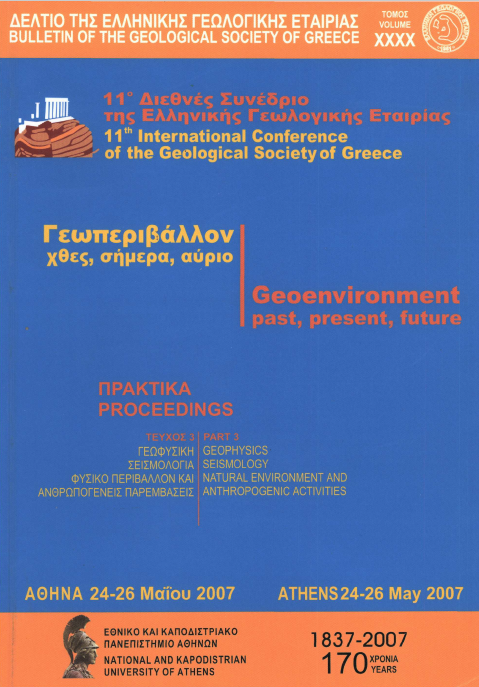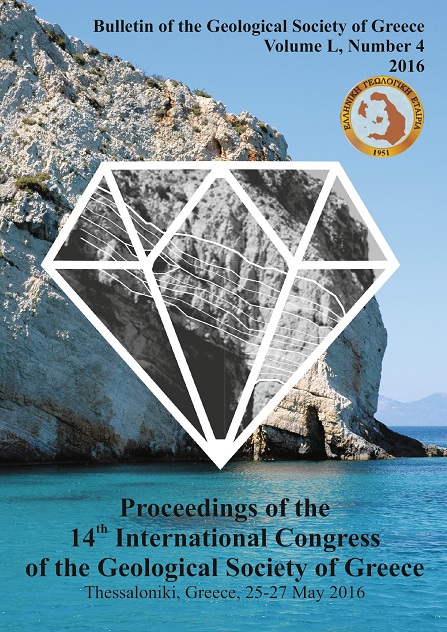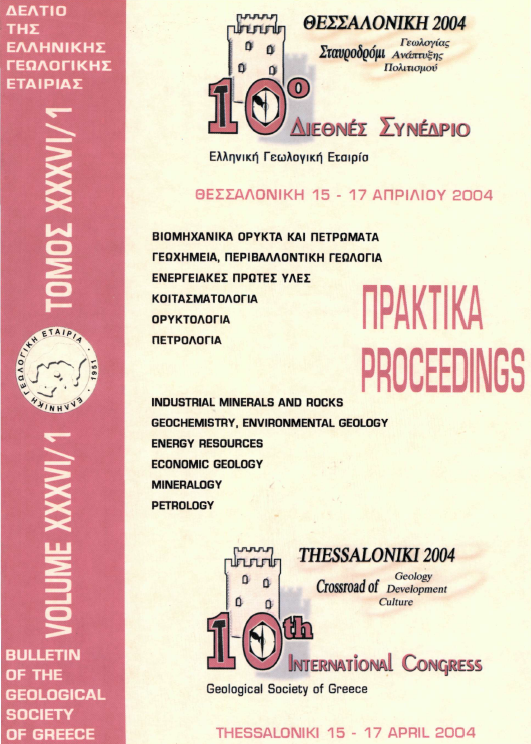Trace element contents in uncultivated surface soils in the Kavala area, northern Greece

Abstract
A total of 65 uncultivated surface soils samples from the area surrounding the city of Kavala, Northern Greece, was collected and analyzed for their abundance in 22 trace elements. The extraction of the elements from the < 200μm soil fraction was based on the digestion of 0.1 g of each sample with 2 ml HNO3. The analytical methods used were ICP-OES and ICP-MS and the elements analyzed were Ag, As, B, Ba, Cd, Co, Cr, Cs, Cu, Hg, Μη, Mo, Ni, Pb, Sb, Se, Sn, Sr, Ti, V, W, and Zn. The chemistry of the surrounding rocks and mineralizations has mainly affected the trace elements contents of the surface soils samples. The average elemental concentrations of the 65 uncultivated surface soil samples were compared with the average values for normal soils of the USA. Arsenic, Pb, andZn were found to be enriched in the surface soils of the present study by a factor of 7.6, 3.3, and 2.7, respectively, indicating that human activities have contributed to their enrichment, since these elements are strongly connected to the industrial and agricultural activities in the area.
Article Details
- How to Cite
-
Papastergios, G., Filippidis, A., Christofides, G., Kassoli-Fournaraki, A., Fernândez-Turiel, J. L., Georgakopoulos, A., & Gimeno, D. (2007). Trace element contents in uncultivated surface soils in the Kavala area, northern Greece. Bulletin of the Geological Society of Greece, 40(3), 1491–1498. https://doi.org/10.12681/bgsg.16992
- Section
- Natural Environment and Anthropogenic Activities

This work is licensed under a Creative Commons Attribution-NonCommercial 4.0 International License.
Authors who publish with this journal agree to the following terms:
Authors retain copyright and grant the journal right of first publication with the work simultaneously licensed under a Creative Commons Attribution Non-Commercial License that allows others to share the work with an acknowledgement of the work's authorship and initial publication in this journal.
Authors are able to enter into separate, additional contractual arrangements for the non-exclusive distribution of the journal's published version of the work (e.g. post it to an institutional repository or publish it in a book), with an acknowledgement of its initial publication in this journal. Authors are permitted and encouraged to post their work online (preferably in institutional repositories or on their website) prior to and during the submission process, as it can lead to productive exchanges, as well as earlier and greater citation of published work.





